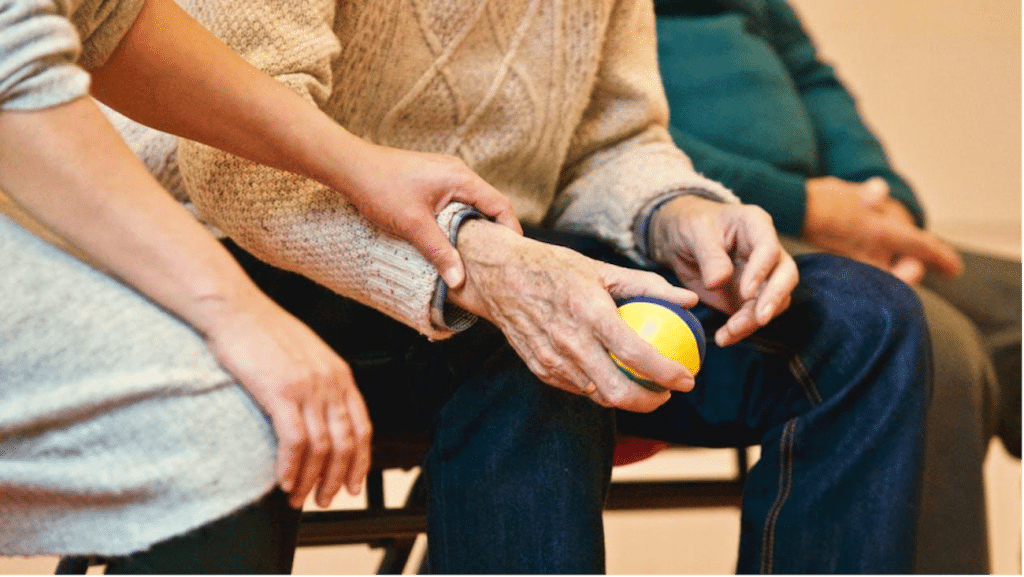When it comes to health conditions, it’s no secret that some of them get more attention than others. Most people are familiar with cancer and diabetes and have a surprisingly good idea of what battling them entails. This is often the case because there’s been a lot of awareness work done, and people may have relatives who battled the conditions.
Parkinson’s disease, on the other hand, is rarely talked about or featured in the same manner. According to the Parkinson’s Foundation, the number of people in the US with the condition is close to one million. Globally, the figure is closer to 10 million people.
In this article, we will try to understand some of the lesser-known aspects that people with this condition go through. Let’s dive in.
What is Parkinson’s Disease?
Parkinson’s disease is a progressive neurodegenerative disorder that primarily affects movement. It was named after James Parkinson, the English physician who first described the condition in 1817. Parkinson’s disease is characterized by the degeneration of nerve cells in the substantia nigra, a region of the brain responsible for producing dopamine.
Dopamine is a neurotransmitter that plays a crucial role in coordinating smooth and controlled muscle movements. Individuals may experience involuntary shaking of certain parts of the body, often referred to as “resting tremors.”
Similarly, slowness of movement, stiffness, postural instability, and non-motor symptoms are common. The non-motor symptoms include sleep disturbances, cognitive changes, and depression.
The cause of Parkinson’s disease is not well understood, but it is believed to involve a combination of genetic and environmental factors. That said, there have been reports that exposure to toxic chemicals can lead to the condition.
Take, for instance, the victims of the Camp Lejeune water contamination incident, which happened between the 1950s and the 1980s.
According to TorHoerman Law, many Marines and residents of the famous Jacksonville Marine base ended up developing Parkinson’s disease after being exposed to PFAS chemicals. As such, we can say that the condition can be triggered by certain toxins.
The most recent Camp Lejeune lawsuit update showed that many victims are still awaiting justice in the form of settlements. As the WHO states, Parkinson’s disease gets worse over time, with no cure still in sight. Treatment focuses primarily on symptom control, and it is a truly unfortunate situation for those affected.
Let us now look at some of the lesser-known realities of living with Parkinson’s disease.
1. Exercise Becomes Important
As discussed above, one of the hallmark features of Parkinson’s disease is the progressive loss of neurons that generate dopamine.
Dopamine neurotransmitters are crucial for coordinating smooth and controlled movements. Exercise has been shown to promote the release of dopamine, potentially helping to mitigate the impact of this neurodegenerative process.
This neuroprotective effect underscores the importance of incorporating regular physical activity into the routine of individuals diagnosed with Parkinson’s.
Moreover, exercise plays a central role in addressing the cardinal motor symptoms of the disease. It helps improve flexibility, balance, and coordination, thereby mitigating the challenges posed by bradykinesia and postural instability.
2. Relationships Take a Hit
As Parkinson’s progresses, the individual may encounter difficulties in performing routine tasks, from personal care to household chores. This can result in a redistribution of responsibilities, placing additional burdens on partners, children, or other family members.
The adjustment to these altered roles can be challenging, and lead to feelings of frustration.
Communication challenges often emerge as another difficulty that impacts relationships. Parkinson’s can bring about changes in speech patterns and facial expressions, making it more difficult for individuals to convey their thoughts and emotions effectively.
The social dimension of relationships can also be affected, as individuals with Parkinson’s often contend with a reduced capacity for social activities. The physical limitations imposed by the condition tend to restrict participation in social events and outings, potentially leading to a sense of isolation.
Maintaining a sense of connection with friends and social circles becomes a delicate balancing act. It starts to require adaptability and understanding from both the individual and their social network.
3. Medication Effectiveness Fluctuates
Medication management is a cornerstone in the treatment of Parkinson’s, aiming to alleviate motor symptoms. However, the dynamic nature of the disease and the complexities of the brain’s response to medication introduce fluctuations in medication effectiveness.
These fluctuations manifest as a seesawing between periods of improved symptom control, in an “on” and “off” state. This variability can be both unpredictable and disruptive, significantly impacting the daily lives and activities of individuals with Parkinson’s.
The “on” state is characterized by improved mobility, reduced tremors, and an overall enhanced ability to perform daily activities. During these periods, individuals with Parkinson’s experience a better quality of life.
However, the duration and intensity of the “on” state can vary, and as the medication’s effects wear off, the individual transitions into the “off” state. The “off” state predictably refers to a period when the effectiveness of levodopa diminishes, leading to a resurgence of motor symptoms.
According to WebMD, there are many such fluctuations. Besides the “on-off” phenomenon, people also suffer from dystonia, dyskinesia, and freezing. These reactions are common with levodopa, a common dopamine replacement drug.
In conclusion, the lives of individuals affected by Parkinson’s disease are marked by complex physical, emotional, and social challenges. The progressive nature of the disease introduces a range of symptoms that require constant adaptation and resilience.
However, despite the many challenges, people with Parkinson’s disease exhibit remarkable courage and determination. With advancements in medical research, we can only hope for improved management of symptoms and, perhaps, a cure in the future as well.
